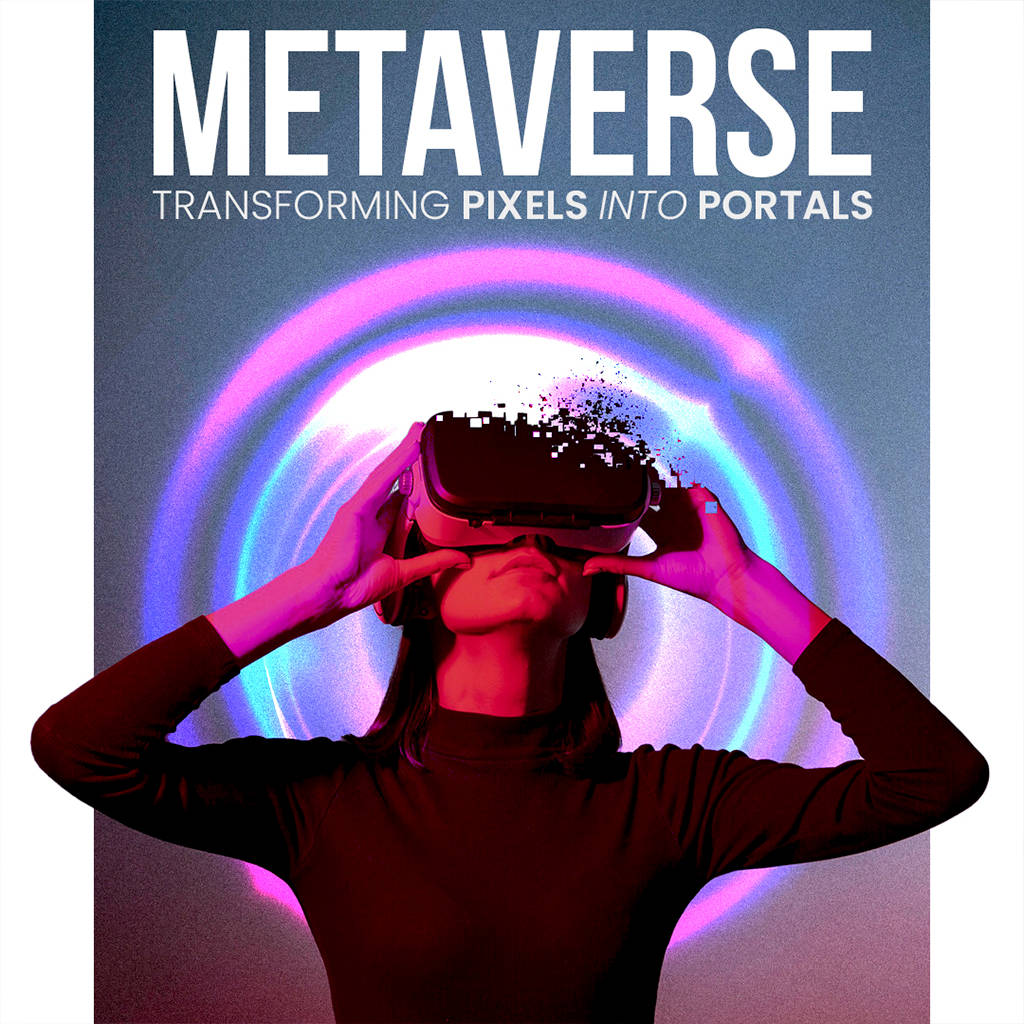Introduction:
In the vast landscape of technological advancements, the concept of the metaverse has emerged as a revolutionary frontier, promising a new era of interconnected, immersive digital experiences. The metaverse is not merely an extension of current virtual realities but a comprehensive and interconnected virtual universe where people can work, play, socialize, and create. This article explores the metaverse, its key components, potential applications, and the transformative impact it may have on various aspects of our lives.
Understanding the Metaverse:
The metaverse is a collective virtual space that integrates augmented reality (AR), virtual reality (VR), and the traditional internet. Unlike its predecessors, the metaverse is persistent, meaning it continues to exist and evolve independently of individual user sessions. It is a shared digital universe where users can seamlessly move between different virtual spaces, creating a sense of continuity and interconnectedness.
Key Components of the Metaverse:
Immersive Technologies:
- Virtual Reality (VR) and Augmented Reality (AR) technologies play a pivotal role in providing users with immersive experiences within the metaverse. These technologies enhance the sense of presence and interaction in digital environments.
Social Interaction:
- Central to the metaverse is the emphasis on social interaction. Users can communicate, collaborate, and engage with others in real-time, transcending geographical boundaries. Social elements are seamlessly integrated into various virtual spaces.
Virtual Economies:
- The metaverse introduces the concept of digital economies where users can engage in virtual commerce, buy, sell, and trade virtual assets using digital currencies. This opens up new possibilities for businesses and entrepreneurs.
Persistent Environments:
- Unlike traditional online experiences, the metaverse is persistent. Changes made by one user remain in the virtual space for others to see, fostering a sense of continuity and shared history within the digital universe.
User-Generated Content:
- Users are not mere consumers in the metaverse; they are active participants. The metaverse encourages user-generated content, enabling individuals to contribute to the creation and evolution of the digital space.
Applications of the Metaverse:
Virtual Workplaces:
- The metaverse could redefine the way we work by providing virtual office spaces, facilitating remote collaboration, and enhancing productivity through immersive digital environments.
Education and Training:
- Educational institutions and training programs can leverage the metaverse to create interactive and engaging learning experiences, allowing students to explore virtual classrooms and simulations.
Entertainment and Gaming:
- The gaming industry has been a pioneer in exploring the metaverse concept. Virtual worlds within games can seamlessly integrate with broader metaverse platforms, offering new dimensions of gameplay and social interaction.
Socializing and Events:
- The metaverse provides a platform for social gatherings, events, and entertainment. Users can attend virtual concerts, conferences, and socialize in digital spaces, enhancing the way we connect and share experiences.
Business and Commerce:
- Businesses can establish a virtual presence within the metaverse, conducting virtual commerce, marketing products, and offering unique customer experiences.
Challenges and Considerations:
While the metaverse presents exciting possibilities, it also raises ethical, privacy, and security concerns. Questions regarding data ownership, digital identity, and the potential for virtual addiction need careful consideration. Additionally, ensuring inclusivity and accessibility within the metaverse is crucial for its widespread adoption.
Conclusion:
The metaverse represents a paradigm shift in the way we perceive and engage with digital spaces. As technology continues to advance, the metaverse is poised to become an integral part of our lives, offering opportunities for innovation, collaboration, and creativity. While challenges exist, the potential benefits of the metaverse are vast, promising a future where the boundaries between the physical and digital worlds blur, opening up a new era of limitless possibilities. Embracing the metaverse may well redefine the way we live, work, and connect in the years to come.




